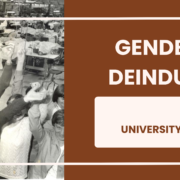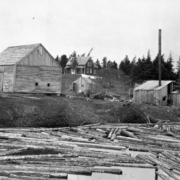Posts
The Politics of Industrial Closure Conference: Preliminary program and info package
The info package and preliminary program for DePOT’s 2023 conference is now available! You can read it here.
Registration for the conference is also open on Eventbrite.
If you have any questions or concerns, please email deindustrialization@concordia.ca.
Last updated: February 23, 2023 to correct a typo. To make sure that you’re consulting the most up-to-date version of the program, visit our conference page.
Call for Papers: The Politics of Deindustrialization | Appel aux communications: La politique de la fermeture industrielle
Read the call for papers for our 2023 conference in Sydney, Nova Scotia. | Lisez l’appel à communications pour notre conférence de 2023 à Sydney, en Nouvelle-Écosse.
Events
(Un)just Transitions?: Deindustrialization and the Environment
(Un)just Transitions?: Deindustrialization and the Environment
The call for papers is now available! Read and download it in French or English here.
What can the study of deindustrialization add to our understanding of environmental history? And conversely – what can the study of environmental history contribute to deindustrialization studies? Answering these questions will be the focus of the 2026 Deindustrialization and the Politics of Our Time (DePOT) annual conference, whose theme is “Deindustrialization and the Environment.”
Transitions are central in both environmental and deindustrialization studies. In environmental history, these transitions include the agricultural and industrial revolutions, and changes in energy sources from wood to fossil fuels, to renewables. These have been explored in the context of the legal system, labour, culture, economy and politics. Deindustrialization studies also centre on questions of transition. Studies might, for example, assess the impacts and transformations at work in the relationship between humans and nature in the decline, removal, or shift of industrial activity. The conference looks to explore these and other aspects of the intersection between deindustrialization and the environment.
Along with presentations and keynote addresses, the conference will include scheduled tours of relevant sites in Montreal.
We are pleased to welcome submissions for individual papers, panels, or roundtable discussions that speak to these and other themes including:
- Toxic legacies, environmental remediation, “greening” and redevelopment initiatives.
- Energy transitions
- Worker health and safety, trade unionism and environmental justice
- Citizen science
- Climate politics, populism, and “just transitions”
- Noxious deindustrialization
- Industrial nature
- Heritage and the environment
More information will follow in our conference program



 Canada. Dept. of Mines and Resources / Library and Archives Canada / PA-021558
Canada. Dept. of Mines and Resources / Library and Archives Canada / PA-021558

